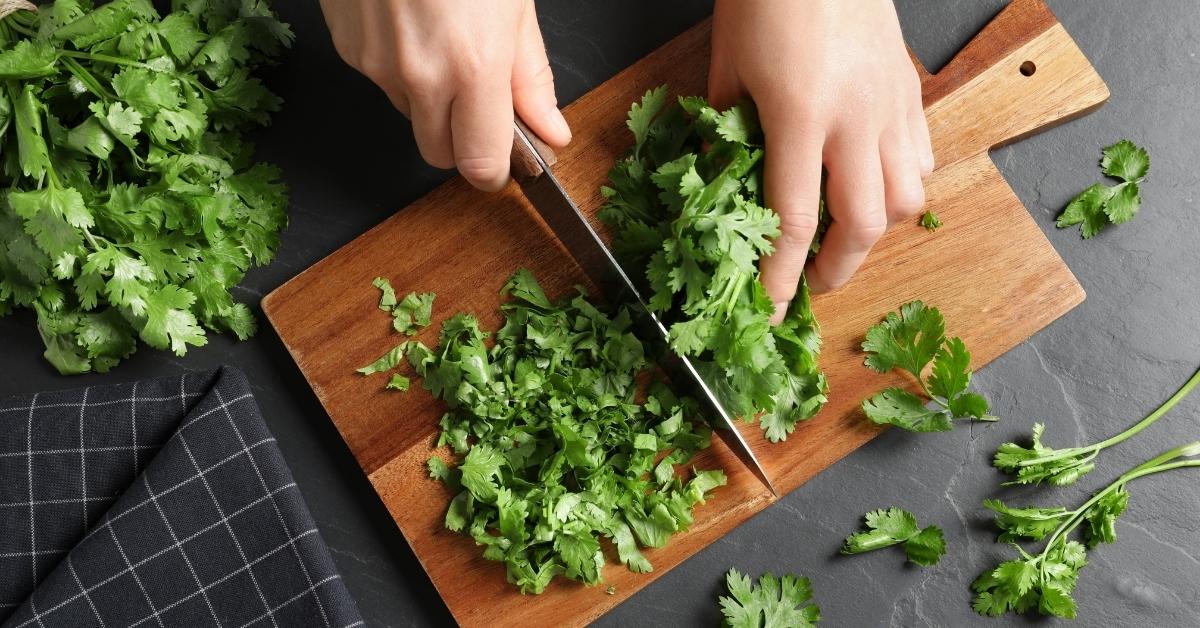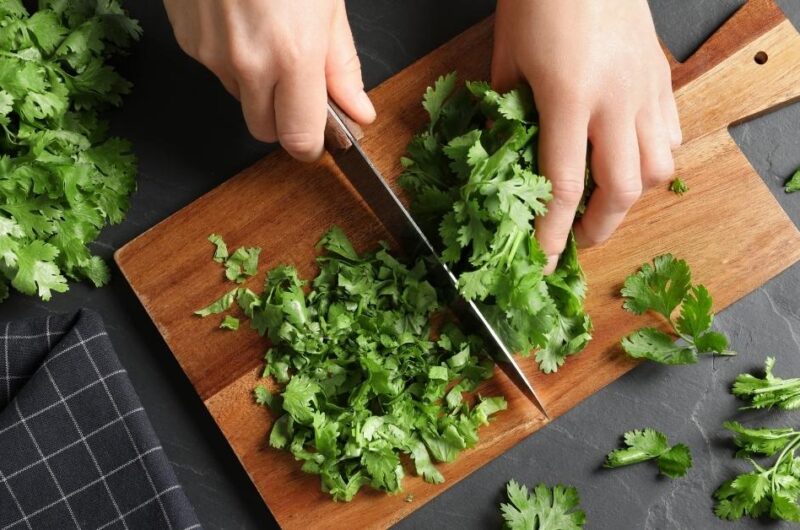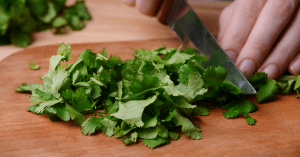If you have a fresh crop from the garden, you might be wondering how to freeze cilantro.
Luckily, it’s easy to freeze and store this fragrant herb.
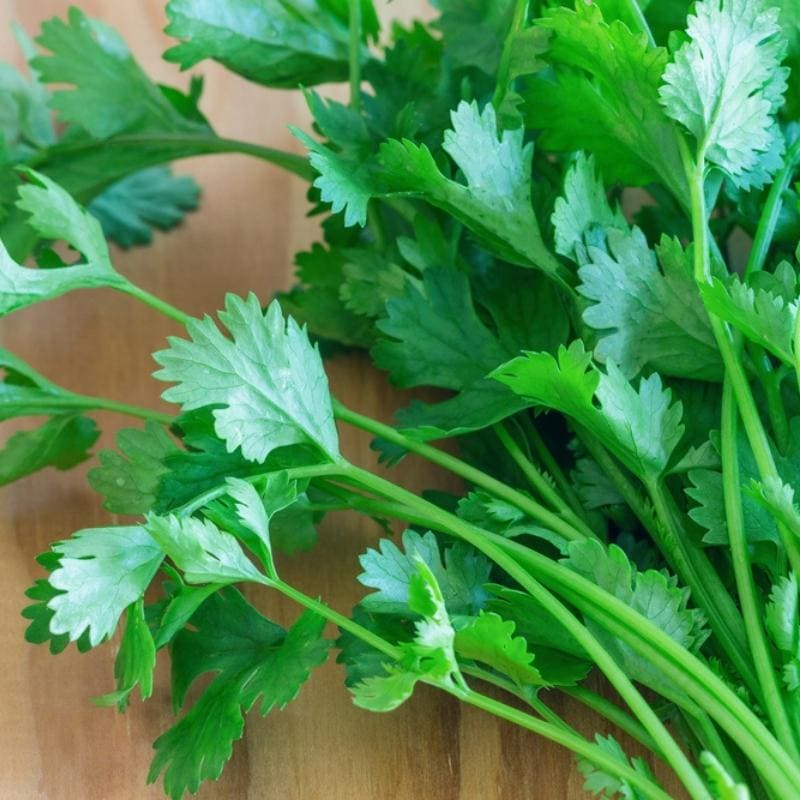
Freezing is one of the easiest ways to extend the shelf life of most foods.
And provided you freeze from fresh, most ingredients will thaw out with the same quality.
(Unless it’s improperly stored and frozen for too long.)
But does that extend to herbs? And if so, how do you freeze cilantro?
Can You Freeze Cilantro?
Cilantro freezes well and can be stored for six months or more in the freezer. Freezing extends the shelf life significantly and reduces food waste. Some methods call for drying the herb first, but that can lead to a loss of color and flavor. Instead, ensure it’s washed, then freeze when it’s dry.
So if you’ve bought or grown too much cilantro, don’t be afraid to freeze it.
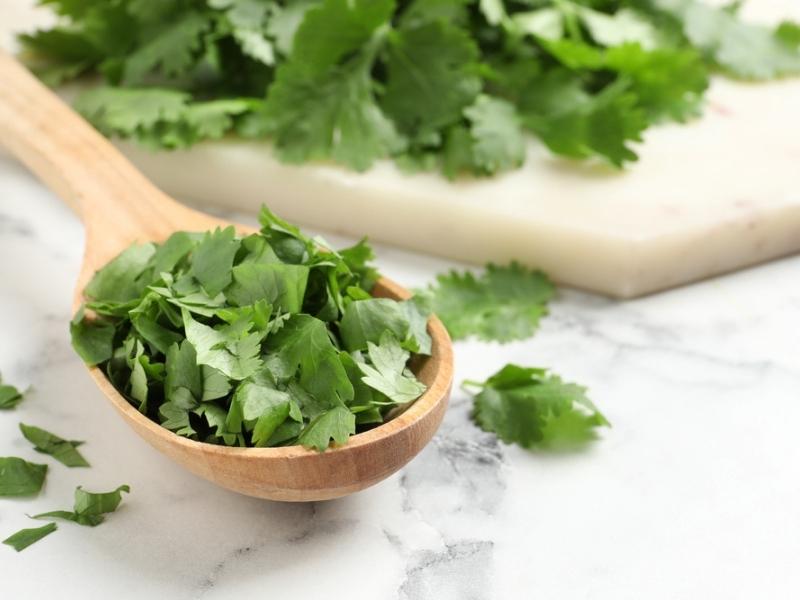
How to Prepare Cilantro Before Freezing
There are two main ways to freeze cilantro: chopped or whole. However, the preparation is the same regardless of which method you use.
As with most fresh herbs, you’ll start by washing the cilantro.
All that requires is running it through some cool water. This will clean off any dust, dirt, or products added to the leaves at the store.
Afterward, be sure to dry the cilantro completely.
You don’t want any water on the leaves when you freeze them, as any droplets will form ice crystals and damage the herb.
I typically pat the cilantro dry with paper towels, then lay them on more absorbent towels until they’re dry.
You can also gently roll the cilantro up in the paper towels. But be careful not to break or rip the leaves while doing this.
Once the cilantro is clean and dry, you’re ready to freeze it.
*Note: when I say “dry,” I just mean “not wet.” I’m not talking about dried herbs, which are paper-like and dusty.
How to Freeze Cilantro
The easiest way to freeze cilantro is to freeze it whole. Therefore, that’s the one we’ll talk about first.

1. Freeze Cilantro Whole in Bags
This method of freezing cilantro is practically effortless. Simply separate the sprigs and put them in plastic zip-lock bags.
If you don’t have much to freeze, they may all fit in the same bag. However, you may have to use more than one bag if you have an excessive amount.
Either way, wash and dry the sprigs, then place them whole into zip-lock bags. Be sure to leave the top fourth of the bag empty. (i.e., don’t fill them to the top.)
Then, press as much air out of the bag as possible before zipping it. Voila! That’s all it takes.
You can also use vacuum-sealed bags if you prefer, and the method is still the same.
Place clean, dry cilantro sprigs into the bags, leaving the top fourth empty. Then, use your vacuum sealer to remove the air from the bag while sealing it.
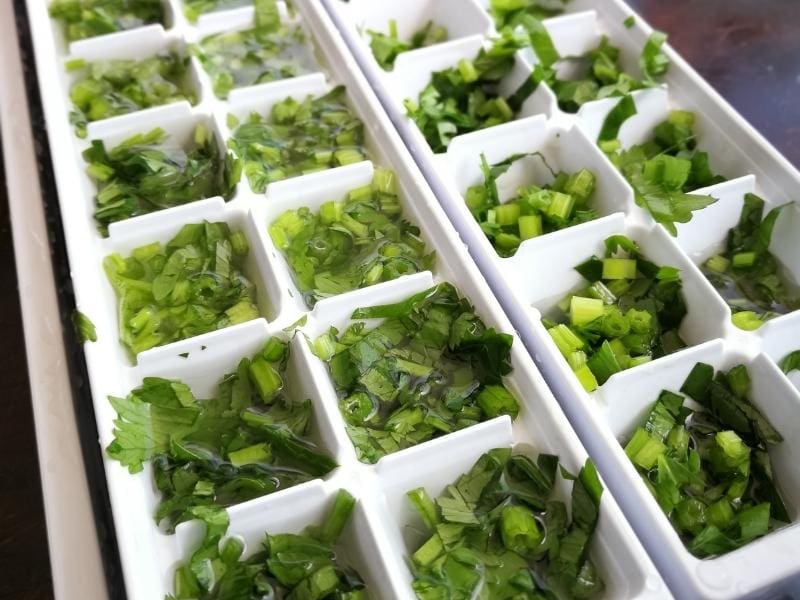
2. Freeze Chopped Cilantro in Ice Trays
For this method, you’ll want to chop the cilantro finely. (You could also blitz it in a food processor.*)
After you’ve chopped or processed it, transfer it into an ice tray. Add water to the tray, and freeze it.
When the cubes are completely frozen, you can remove them and put them in zip-lock bags. (Any airtight container will suffice.)
*Note: If you use a food processor, add water/oil before putting the cilantro in the tray. Doing so will make it into a paste that you can pour into the tray.
How Long Does Frozen Cilantro Last?
Frozen cilantro can last indefinitely if you use an airtight container. However, it tastes best when consumed within six months or less. It won’t necessarily go bad after six months, but it won’t maintain its freshness beyond half a year. You’ll likely notice it isn’t as colorful or fragrant.
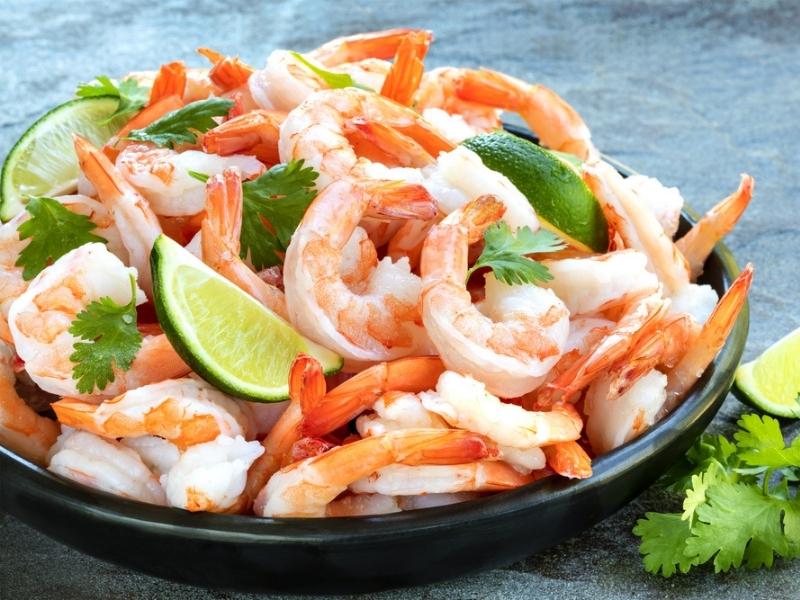
How to Use Frozen Cilantro
You can use frozen herbs in a myriad of ways. However, it tastes best in recipes where it’s mixed in with something. (i.e., not when used fresh, alone, or as a garnish.)
So, here are five of my favorite uses for frozen cilantro:
1. Cilantro Lime Shrimp
This dish emphasizes seafood and citrus juices (lemon and lime).
And like the chili flakes, the cilantro adds a nice flavor tweak but doesn’t take center stage.
It blends beautifully with olive oil, juices, and spicy chili flakes. You’ll never realize that it wasn’t fresh when you added it.
2. Tomato Salsa
Believe it or not, frozen cilantro works well in homemade salsa.
It may not be quite as strong in the final flavor – especially if it’s been frozen longer than six months.
Even so, it still gives it that crisp, fresh flavor we all know and love.
Plus, tomatoes, onions, and chili peppers are the most prevalent flavors in this dish anyway.
3. Any Stock
Whether you’re making beef, chicken, or seafood stock, cilantro will improve it.
It adds a nice dash of fresh flavor that lightens the whole recipe. And it doesn’t have to be fresh to do that.
4. Cilantro Chutney
Chutney, like most Indian foods, is a mishmash of robust flavors.
The cilantro, though tasty, is one of many things in this scrumptious sauce.
So, after adding chilies, sugar, juices, etc., you won’t be able to tell the cilantro wasn’t fresh.
5. Pesto
Most people use basil when making pesto. However, cilantro is just as bright, zesty, and delicious.
It blends surprisingly well with Parmesan, pine nuts, and garlic.
Plus, making pesto is beyond effortless. It even freezes well! So instead of feezing the cilantro alone, make a batch of pesto and freeze that instead.


